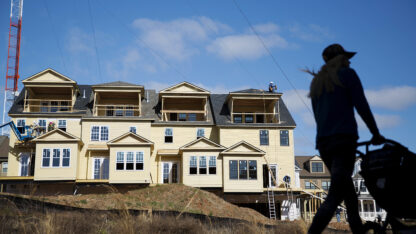Some Georgia lawmakers want to limit rising property taxes. This comes as property value around metro Atlanta continues to rise, and homeowners look for relief.
Last week, the state’s finance committee held a hearing on Senate Bill 349, a bill that would cap the property tax at 3% of a home’s increased value per year.
According to the real estate company Redfin, in December, Atlanta home prices rose 6.5% compared to last year, selling for a median price of $410,000.
Republican Senate Finance Committee Chairman Chuck Hufstetler proposed a limit of 3% on a home’s increased value per year that would last as long as the owner maintained a homestead exemption.
“For any homeowner, when the assessors increase your value, they can increase it 20%, 30%, 40%,” said Hufstetler.
“Your taxes could only go up for 3% of the increase. It cannot be what they assess it to.”
Republican House Speaker Jon Burns has proposed doubling the state’s homestead tax exemption, which would significantly cut tax bills statewide.
However, some argue the bill could hurt funding for schools and local government services from the lost tax revenue. Housing experts say a proposed bill to limit rising taxes could also stifle the housing market.
“These kinds of laws, especially in California, have shown to freeze up property markets and homeownership markets so that people don’t sell because if they sell and then they buy another home, they’ll face much higher property taxes,” said Dan Immergluck, a Professor of Urban Studies at Georgia State University.
He says this bill could further reduce Atlanta’s shrinking housing inventory.
“It really reduces the available inventory for younger families, especially those who might want access to homeownership,” the Georgia State professor said.
Immergluck believes that the state should consider programs that give tax rebates to lower-income homeowners to compensate for the growing property value.
“It’s unfair because most of the benefit will go to the folks with the most expensive homes,” said Immergluck.
Voters will have the opportunity to approve the plan in a November referendum.









